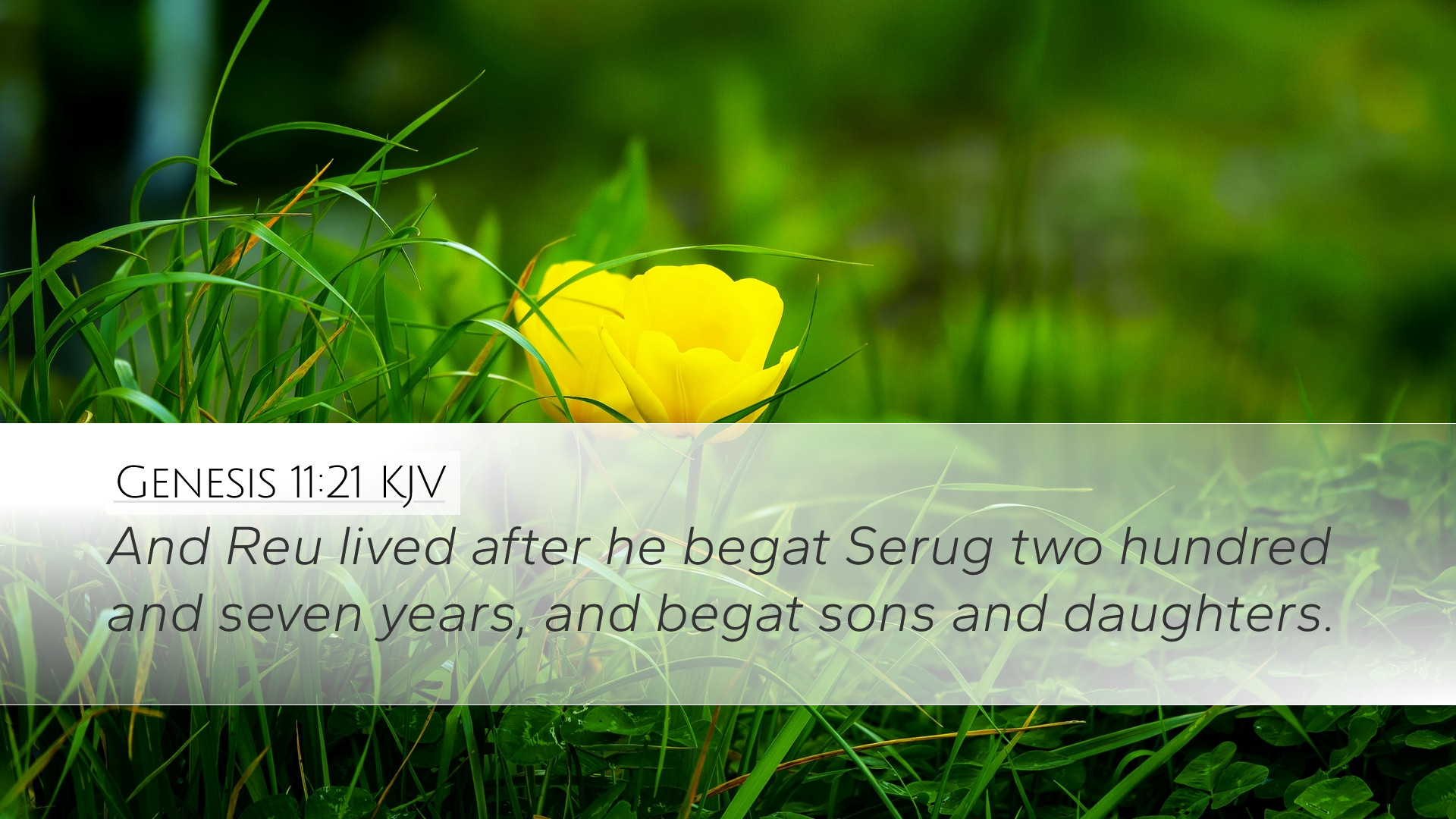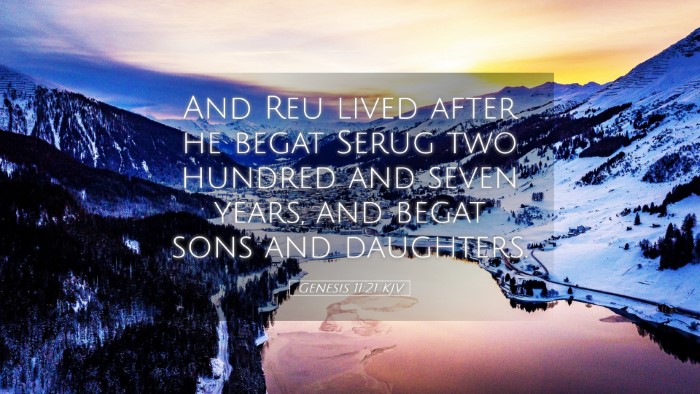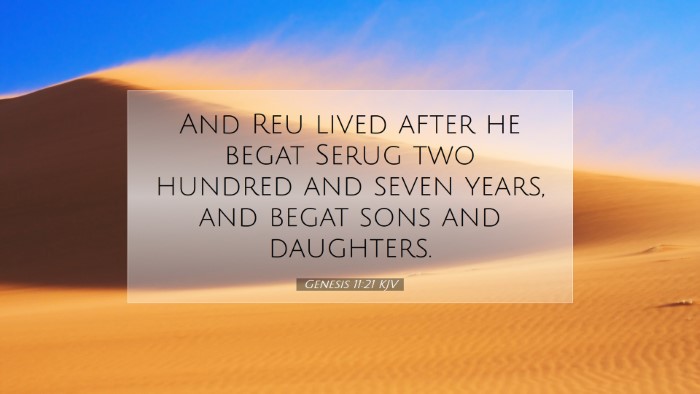Commentary on Genesis 11:21
Genesis 11:21 states: "And Reu lived two and thirty years, and begat Serug." This verse is part of the genealogical record in Genesis that outlines the descendants of Shem, leading eventually to Abraham. The commentary from various prominent scholars sheds light on the significance of this verse within the broader narrative.
General Overview
This verse may seem straightforward at first glance, detailing the age at which Reu fathered Serug. However, such genealogical details play a crucial role in biblical history, linking significant figures and events. The genealogies provide a framework for understanding the unfolding plan of God throughout Scripture.
Insights from Matthew Henry
Matthew Henry emphasizes the importance of genealogies as part of God's revelatory process. He notes that each name is significant, contributing to God's redemptive story. Henry remarks that the detailed record of ages demonstrates God's faithfulness through generations. He elaborates on Reu's name meaning "friend" or "companion," linking it to the relational nature of God, who desires companionship with humanity.
Thoughts from Albert Barnes
Albert Barnes focuses on the chronological aspects of this verse. He discusses the age of Reu at the time of Serug's birth and the implications for understanding the timeline of biblical history. Barnes points out that genealogies serve not only to record lineage but also to affirm God's covenant promises. He encourages readers to see beyond the numbers to the divine providence at work in human affairs.
Reflections from Adam Clarke
Adam Clarke provides a more exegetical perspective on Genesis 11:21, considering the linguistic elements of the names involved. Clarke notes the significance of 'Reu' and 'Serug', stating that their names encapsulate theological themes relevant to their characters and the era they represent. He relates this to the broader context of the dispersion at Babel and God's purpose in preserving a godly lineage amidst human rebellion.
Theological Implications
- Continuity of God's Promises: The genealogy underscores God's unwavering commitment to His covenant, tracing His chosen people. Pastors and theologians can draw parallels between this ancient lineage and the present community of believers, emphasizing the ongoing nature of God's work.
- The Role of Human Agency: Reu's act of fathering Serug illustrates the human element in God's plan of salvation. While God is sovereign, He utilizes human actions and decisions to accomplish His will, a vital point for students of Scripture.
- The Importance of Community: The notion of belonging and familial relationships is highlighted. Churches today can reflect on their communal experiences, learning from the familial ties represented in these genealogies.
Application for Pastors and Scholars
As pastors and scholars study Genesis 11:21, they should consider how the discussions of genealogy inform contemporary understandings of identity and purpose in Christ. Preachers might use Reu's lineage to highlight the faithfulness of God through historical narratives, promoting hope and encouragement among their congregations.
The genealogical record also serves as a reminder of God’s sovereignty over history. In teaching settings, unpacking the genealogies can provide insights into the broader biblical narrative, making connections to Christ and affirming the belief that all of Scripture points to Him.
Conclusion
Genesis 11:21, while consisting of mere historical data regarding Reu and his son Serug, invites deeper reflection on the nature of God's faithfulness and His intricate design throughout history. The insights from Henry, Barnes, and Clarke collectively urge us not to overlook the significance of these genealogies, as they pave the way for understanding God’s ultimate plan for redemption through Jesus Christ. In every generation, God remains a faithful companion, weaving together the fabric of His story through each individual and their legacy.


